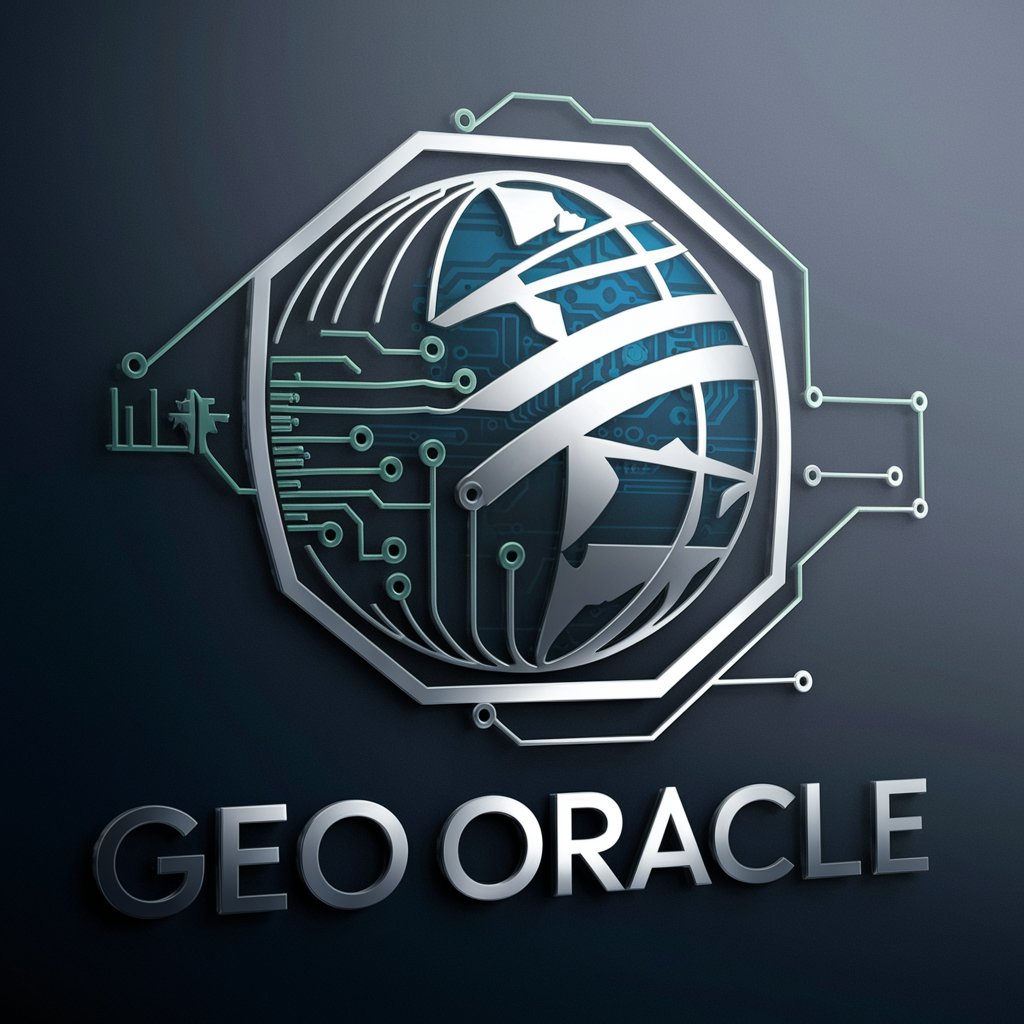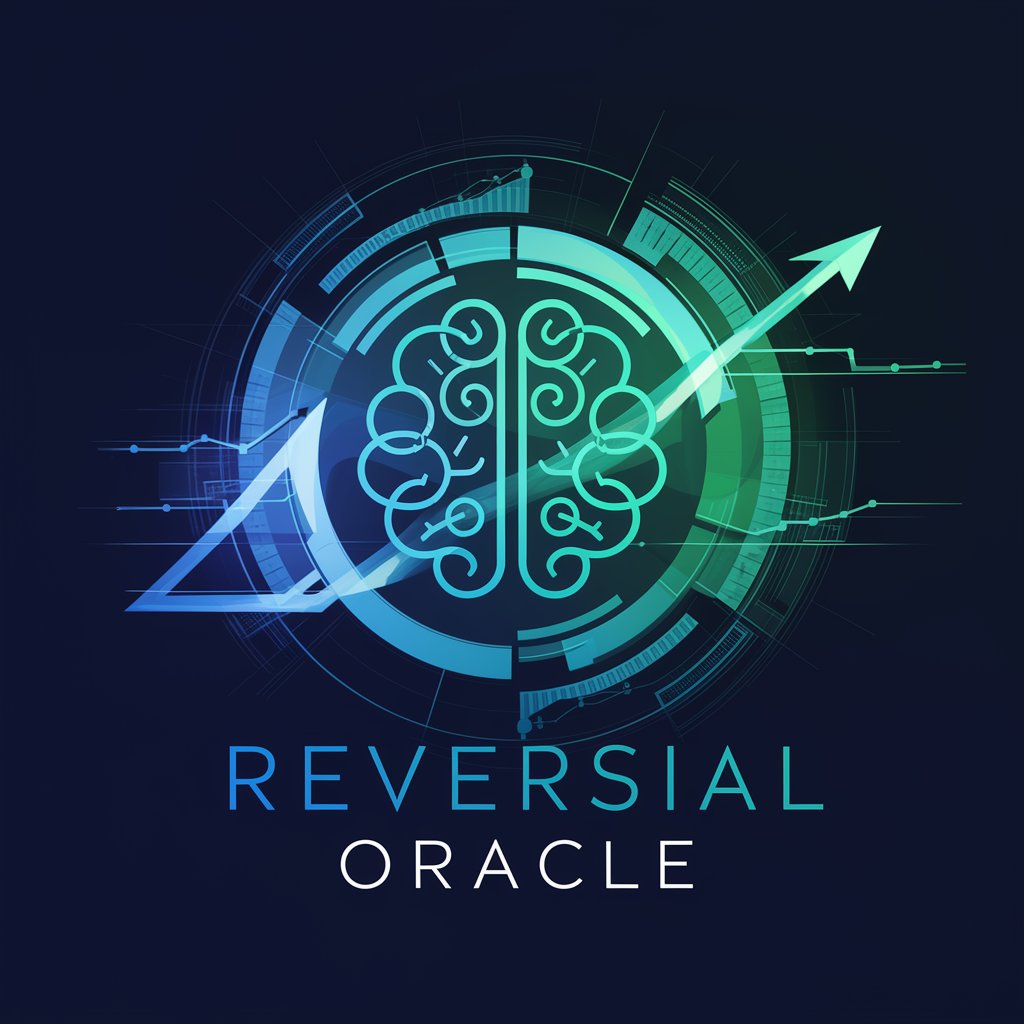GEO Oracle - In-Depth Geopolitical Analysis

Welcome to GEO Oracle, your source for deep geopolitical insights.
Illuminating the Geopolitical Landscape with AI
Analyze the historical context of...
Evaluate the potential geopolitical impacts of...
Forecast the future scenarios for...
Assess the influence of emerging technologies on...
Get Embed Code
Overview of GEO Oracle
GEO Oracle is designed to provide an advanced, comprehensive analysis of global geopolitical dynamics, combining historical context, current affairs monitoring, predictive modeling, and various analyses into a singular, robust platform. Its core purpose is to offer nuanced, data-driven insights into the geopolitical landscape, aiding users in understanding complex international relations, forecasting geopolitical shifts, and evaluating the impact of global events. For instance, GEO Oracle can dissect the historical context behind a current military conflict, provide real-time monitoring of the situation, predict potential outcomes, and analyze the broader implications for regional stability. Powered by ChatGPT-4o。

Core Functions of GEO Oracle
Comprehensive Historical Analysis
Example
Analyzing the long-term impacts of colonialism on current African geopolitics, highlighting how historical boundaries influence today's conflicts and alliances.
Scenario
A user might request an in-depth analysis of the historical underpinnings of the conflict in the Sahel region to understand the current geopolitical tensions and potential future developments.
Real-Time Event Monitoring
Example
Tracking live updates during a political upheaval or election in a key country, providing context on its geopolitical significance.
Scenario
An analyst monitoring an election in a geopolitically strategic nation uses GEO Oracle to understand the immediate impacts on regional alliances and global power structures.
Predictive Geopolitical Modeling
Example
Using data-driven methods to forecast the implications of a potential trade agreement between two major economies on global trade dynamics.
Scenario
A multinational corporation seeks to understand how a new trade deal in Asia might affect its operations and strategic planning.
Economic and Demographic Analysis
Example
Evaluating the potential geopolitical impact of demographic trends like aging populations in Europe or urbanization in Asia.
Scenario
A policy maker requests an analysis to anticipate how demographic shifts could influence future political and economic stability in their region.
Global Policy Analysis
Example
Assessing the potential outcomes of major environmental policies on international relations and compliance with global agreements.
Scenario
An environmental NGO uses GEO Oracle to project how new climate policies might affect international cooperation on environmental issues.
Target User Groups for GEO Oracle
Government Agencies
These entities can leverage GEO Oracle for strategic insights into global trends, aiding in policy-making, diplomatic strategies, and national security. They would benefit from understanding geopolitical risks, alliance dynamics, and the impact of international events on national interests.
Multinational Corporations
Corporations operating across borders require nuanced understanding of geopolitical climates to navigate risks, understand market dynamics, and make informed investment decisions. GEO Oracle can assist in scenario planning, risk assessment, and strategic forecasting.
Academic Institutions
Researchers and students in international relations, political science, and related fields can use GEO Oracle to access detailed analyses, historical context, and predictive insights for academic projects, research, and understanding complex geopolitical phenomena.
Non-Governmental Organizations (NGOs)
NGOs focused on global issues such as human rights, environmental advocacy, or humanitarian aid can benefit from GEO Oracle's insights to better understand the geopolitical landscape, forecast trends, and plan their initiatives accordingly.

How to Use GEO Oracle
Start Your Journey
Begin by accessing a trial at yeschat.ai, available without the need for a login or a ChatGPT Plus subscription.
Define Your Query
Clearly articulate your geopolitical question or scenario, focusing on specific events, trends, or analyses you're interested in.
Select Your Focus
Choose the geographical region, period, or event you want to explore to tailor the GEO Oracle's analysis to your needs.
Review Insights
Analyze the detailed insights provided by GEO Oracle, which include historical context, current affairs, and predictive modeling.
Iterate and Refine
Refine your queries based on the insights received to explore different angles or deepen your understanding of a specific geopolitical aspect.
Try other advanced and practical GPTs
Crash Oracle
AI-driven Financial Insight and Foresight

Crypto Oracle
AI-Powered Crypto Market Analysis
Revesal Oracle
Empower Your Insights with AI

Shopware API Navigator
Streamline Your Shopware API Development

Pine Creator
Empowering your trading with AI-driven Pine Script development.

夢町通りの絵描き屋さん
Visualize your future through art

HistoriOracle
Reviving History with AI-powered Role-Play

WP.org Plugin API Information and Blogger
Empowering Your WordPress Experience with AI

Poké infinite Fusion Calculator #1
Craft Unique Pokémon with AI-Driven Fusions

Tarot Oracle
Uncover life's mysteries with AI-driven tarot readings.

Persona Designer
Crafting Personas with Precision and Insight

まとめや
Your cozy, AI-powered summarization companion.

Frequently Asked Questions about GEO Oracle
What is GEO Oracle?
GEO Oracle is an AI-driven tool designed to provide in-depth analysis and insights into geopolitical events, trends, and scenarios. It combines historical data, current affairs, and predictive modeling to offer comprehensive geopolitical intelligence.
How can GEO Oracle help in academic research?
GEO Oracle can serve as a valuable resource for academics by providing detailed historical contexts, analyzing the impact of geopolitical events, and offering forecasts that can enrich research and studies in political science, international relations, and history.
Can GEO Oracle predict geopolitical events?
While GEO Oracle uses data-driven models to forecast potential geopolitical scenarios, it's important to note that these predictions are based on available data and trends, and are subject to change with new developments.
How does GEO Oracle stay updated with current affairs?
GEO Oracle continuously ingests and analyzes news from diverse global sources, ensuring that its insights and analyses reflect the latest developments in the geopolitical landscape.
Is GEO Oracle suitable for policy analysis?
Yes, GEO Oracle can evaluate the potential outcomes of major policy decisions by different nations, making it a useful tool for policymakers, analysts, and strategists looking to understand the implications of various policy choices.
